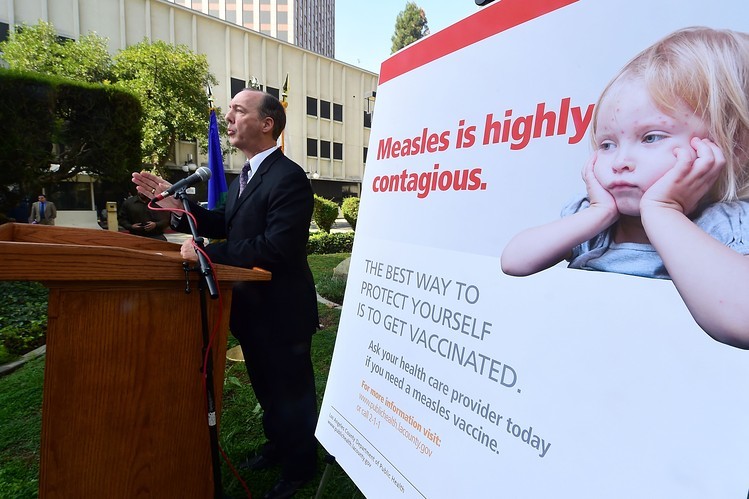
Imagine that you've just lost your job. Maybe you have a family to feed. Maybe you're taking care of sick parents. Maybe you've gotten very ill and don't have health insurance. You have little saved, lots of debt. To survive this crisis, Now is the time for specific actions that can help remedy the situation before it gets worse. And you can do it without applying for government aid.
I’m not Zoltan, the fortune-telling dude in the machine – you know, the one with the turban who waves his mechanical hands dramatically over a crystal ball and tells you of your future in a heavily accented voice.
Economically speaking, the bottom is falling out.
The most recent economic disaster that the US has suffered was in 2008. In just a few weeks, trillions of dollars of American wealth was simply vaporized in what was classified as “The Great Recession.” Over the next 3 years, American financial well-being was diminished by 40%.
Despite what the White House would have you believe, there’s been no significant recovery. And the signs that portended the 2008 crisis are all there, warning us, if we’d only pay attention.
Michael Snyder of The Economic Collapse Blog wrote a post with a grim warning last week. Although we’re all being told …
But then it did end – very painfully.
The signs of trouble were there, but most people chose to ignore them.
Sadly, the exact same thing is happening again.
The biggest indicator of impending financial catastrophe can be seen at the gas pumps. While it seems like a great thing to be spending fewer of our hard-earned dollars getting from A to B, it is a deceptive sign that all hell is about to break loose in the financial world. An article on SHTFplan warns:
On the surface the recent drop in the price of oil has been a huge boost to America’s pocket books. But according to some analysts we shouldn’t be to quick to celebrate. The U.S. Oil and Gas industry has seen incredible job growth during the recession, with nearly 800,000 new jobs being attributed to domestic fracking and drilling expansion. At over $100 barrel, there was plenty of money to go around.
But with a sub-sixty dollar price point, it’s quite possible that all economic hell is about to break loose.
Thousands of recently highly paid workers have been laid off after the oil price plummeted 50 percent in 2014. At least four American oil-producing states are already facing budget problems due to decreasing oil revenues.
In a study published last year, the Council on Foreign Relations warned the largest job losses caused by sharp decline in oil prices are going to take place in North Dakota, Oklahoma and Wyoming, where the number of drilling rigs is decreasing.
That’s not all. According to an analysis by Tess Pennington of Ready Nutrition, job security is ephemeral.
It appears that the confidence in the economy may be another over-inflated attempt at masking the true state of affairs. In fact, some of the largest U.S. corporate conglomerates are planning for massive layoffs in the coming year.
CEO of the Coca-Cola company, Muhtar Kent dubbed 2015 as a transition year and notes that 2015 will most notably be “the most important year for us to make the changes in terms of a leaner, better-operating model.” He adds, “The consumer is challenged everywhere around the world,” Kent said in a conference call. “There is a lot of volatility in the world, in currencies, in interest rates, in growth rates and in geopolitical issues.”
In order to cut losses due to a disappointing quarter, the popular soda company plans to cut at least 1,000-2,000 jobs in coming weeks to try and rein in costs. As well, other major companies have also felt the buoyancy of the world economic markets. Halliburton, USPS and even IBM are also hinting at layoffs in 2015.
There’s concern that the coming year will also be the beginning of the energy sector layoffs. Crude oil has plunged to nearly $50, and energy companies have begun announcing cuts to their 2015 capital budgets of as much as 25 percent. As well, rig counts are falling in Texas as companies shut down drilling operations.
How will the financial collapse affect you?
Maybe you aren’t an investor. Maybe you don’t have real estate. Maybe you are absolutely certain, without a shadow of a doubt, that your job is secure. Perhaps you have money in the bank.
The trouble is, the money you are working overtime to make, the security you feel that you have by saving it … it’s imaginary. It’s nothing but a giant fraud that keeps you a slave to the system.
Joshua Krause of The Daily Sheeple wrote about the dollar:But what is it really worth?
Nothing. It’s worthless, and that’s the godawful truth. I’m not exaggerating to make a point either. It’s not just overrated, overinflated and backed by nothing but confidence. It is quite literally worthless. Less than worthless in fact! Our fractional reserve banking system spews out “money” that is nothing of the kind.
This thing that we spend our whole lives desperately trying to accumulate; that builds our roads, feeds our bellies, pays our mortgages and fuels our dreams. This glorified token that puts our kids through school so that they may spend their whole lives trying to accumulate it as well, is not really money. It’s debt! And it’s not even your debt. It’s somebody else’s liability.
Not only is your money worthless, here a few more ways the current economic trends may still affect you.
- Prices will go up. We’ve seen an almost unprecedented increase in the price of food over the past couple of years, even as the quality of the food available plummets. This is due to massive droughts, early freezes, and basic cost-of-living increases.
- Unemployment will continue to ripple through the country. Those without jobs now are equal to the number of unemployed during The Great Depression. As the economy plummets, that number will almost certainly exceed the previous highs.
- Obamacare mandates will continue to impoverish the middle class. The most ill-conceived policy in history, Obamacare has increased monthly payments while decreasing coverage for nearly every person who is gainfully employed. And, if you refuse to procure coverage through Obamacare, expect attempts to penalize you into compliance. This is adding to the unemployment rate as employers struggle to keep their doors open and drop full-time staff to avoid having to pay their portion of the O-care payments.
- Rents will increase. If you don’t own your home, prepare to pay higher rent as landlords try to cover their losses of income in other sectors. Foreclosures will be on the rise, which means there will be fewer homes available.
The bottom line is, income will remain the same, decrease, or even disappear entirely for many of us. Meanwhile, the price of darn near everything will go up. Expect to pay more for things like keeping your utilities on, feeding and clothing your family, keeping a roof over your heads. Aside from that, those dollars you are carefully saving? They are only providing you with the illusion of security.
How about another refresher on recent history? Remember the economic collapse in Greece? People were digging through garbage to find food. Suicides were rampant as people discovered that they literally could not afford to stay alive. Desperate parents gave up their children to orphanages, just in the hopes that those kids might be able to survive. This isn’t something that happened in the distant past. This occurred in a beautiful, apparently thriving country three short years ago.
If you ever prepped for anything that “might” happen, please understand that this current rate of spiral can only end one way: in financial collapse. There is a much greater statistical likelihood of your family suffering from the effects of this than being subject to a nuclear disaster, an EMP strike, or a devastating natural event. I’m not saying that these other things won’t happen, but the odds are much greater that you will be affected by the economy in 2015.
For many people the economic collapse has arrived. Their “end of the world” event has already occurred in the form of a job loss, the foreclosure of the family home, or an illness that has caused such massive personal debt that there is truly no way out of it. Less than 60% of Americans who are of age to be in the work force have a full-time job. When you tally that, it means that more than 100 million people are out of work. More than 100 million people in the United States have no jobs. For more than 100 million people, the economic collapse has arrived in full force.
How can you prep to weather this economic disaster?If you’re here, reading this, it’s probably because you are of a preparedness mindset. You are ready for all sorts of disasters: huge storms, earthquakes, civil unrest, small personal SHTF moments like a hiking trip gone bad.
But are you prepared for the one thing that is the most likely event to affect your family? Are you ready for an economic collapse on a grand scale?
Prepping for an economic disaster bears some similarity to prepping for other types of disasters. The main difference is figuring out how to make ends meet while making less and spending more. It’s time for a crash course in “Preppernomics.”
The answer to weathering the economic collapse is to make some radical changes to your lifestyle.
If you are in a position where all is well right now, you are one step ahead. Heed the following and make adjustments to allow yourself to be prepared in the event that your personal finances take a hit.
First, you have to take a stark look at what necessities really are. It is not necessary to life to have an iPhone, a vehicle in both stalls of your two-car garage, or for your children to all have separate bedrooms. People in Southern and Eastern Europe right now will tell you, as they scramble for food, basic over-the-counter medications like aspirin, and shelter, that necessities are those things essential to life:
- Water
- Food (and the ability to cook it)
- Medicine and medical supplies
- Basic hygiene supplies
- Shelter (including sanitation, lights, heat)
- Simple tools
- Seeds
- Defense items
Absolutely everything above those basic necessities is a luxury.
So, by this definition, what luxuries do you have?Some are more important than others based on your lifestyle and might be considered secondary necessities. You might require transportation, work clothing, a computer and an Internet connection, electrical appliances, a cell phone – you are the only person who can define which are these are luxuries and which are secondary necessities. It’s essential to be truly honest with yourself and separate “wants” and “I really enjoy having this” and “the kids will complain without it” from “needs”.
You may have to make some brutal cuts.
What can you change about your life? Where can you reduce expenditures by several hundred dollars monthly? This is the point at which most people say, “I can’t.” Most people don’t want to move to a smaller house, get an old car, or go without premium cable. But this is where you can truly dig in and create a lifestyle to survive an economic mayhem scenario.
Everyone’s situation is different. You may be locked into a mortgage on a huge house in a market that won’t even cover the balance of what you owe. It could be the same with your vehicle. Explore all of your options, though, because paying a few thousand dollars to get out from under it could be worthwhile. Some people could have reached the point where they must begin to default on payments. That, too, is a personal choice. I’m not recommending that you blow off your obligations. (However, do consider the fact that large banks get bailed out by the government, and everyday people do not.) Before making decisions like that, be sure to discover all of the potential ramifications, such as repossessions, garnishing of bank accounts, and ruined credit.
When you've come up with a financial plan, stick to it. Like any diet, you'll be tempted to cheat by spending a little more money than you should. You may even find that as time goes by, you want to change your plan a bit. That's OK. Your plan is designed to be flexible so that you don't feel too burdened by something that seems unworkable.
Please Read this Article at NaturalBlaze.com





Leave a Reply